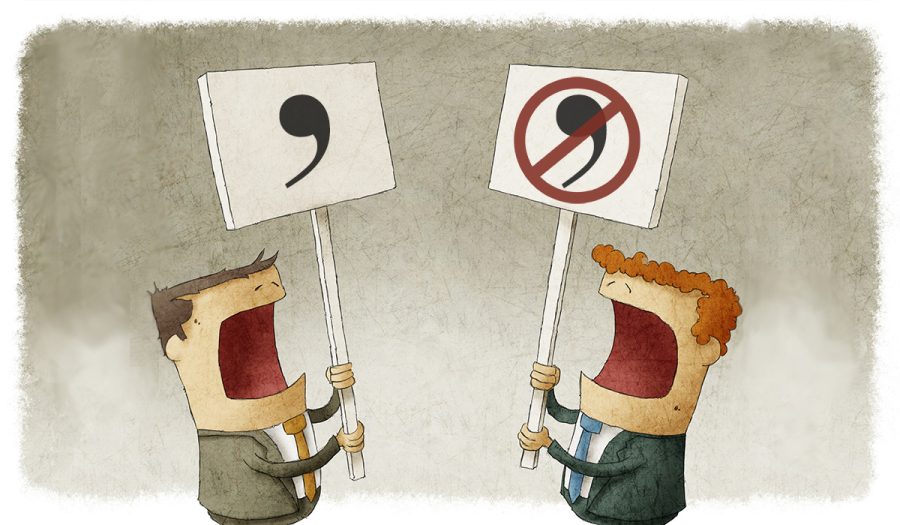Annoying grammar rules: the oxford comma
The Oxford Comma, also known as the Serial Comma, the Series Comma and the Harvard Comma, is defined as the comma used before conjunctions such as “and” or “or,” after the penultimate item in a list. For example, in the sentence “The Oxford comma is necessary, useful, and a pillar of the English language,” the Oxford Comma is the one following the word “useful.”
The actual origins of the Oxford Comma is unclear, but Horace Hart, a printer and controller of Oxford University from 1893-1915, is credited for its invention; while Peter Sutcliffe was the first to coin the term “Oxford Comma” in his 1978 book regarding the history of the Oxford University Press.
Critics of the Oxford Comma argue that it is not always necessary, and should only be used when needed. However, this prevents uniformity and clarity. An example of when the Oxford Comma could be necessary is in the sentence: “I love my parents, Louis Tomlinson, and Taylor Swift.” With the Oxford Comma, it is clear that there are three separate entities I am referring to: my parents and the two singers. However, the omission of the comma (“I love my parents, Louis Tomlinson and Taylor Swift.”) opens the possibility of the interpretation that my parents are Louis Tomlinson and Taylor Swift.
Although this may be a trivial example, a similar instance resulted in a multimillion dollar lawsuit. In 2014, the company Oakhurst Dairy was sued by three truck drivers, who claimed they had been denied four years of overtime pay. The workers referenced the Maine legislature, mandating that for every hour worked over 40 hours, employees must be given one and a half times pay, with the following exceptions: “the canning, processing, preserving, freezing, drying, marketing, storing, packing for shipment or distribution of: agricultural produce; meat and fish products; and perishable foods.” The confusion stemmed from the phrase “packing for shipment or distribution of.” It was unclear whether this meant packing for shipment of the products and the distribution of the products, or packing for both the shipment and the distribution of the products. The first interpretation was the intended meaning, and the placement of an Oxford Comma after the phrase “packing for shipment” would have made this clear.
The court ruled that the punctuation made the law unclear, adding that the Oxford Comma would have made the purpose of the law clear. The company paid the drivers a total of $5 million to settle the lawsuit, one that could have been prevented with a single comma.
The Oxford comma, while seemingly a trivial and meaningless grammar rule, is a vital tool in the English language.












